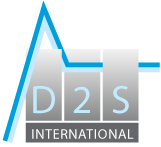Sorry – deze pagina is niet vertaald.
De pagina die u zocht is niet vertaald in de geselecteerde taal.
Hieronder vindt u de Engelstalige versie.
Fluid Connection
Efficient CFD Processes Through Abstract Modeling
CFD analysts tasked with creating and analyzing virtual prototypes are faced with a number of tedious and time-consuming tasks. These include CAD geometry translation, geometry cleanup, manual meshing processes and re-applying e.g. boundary- and volume-conditions whenever the product geometry changes. When time-consuming tasks coincide with a shortage of analysts, assuring timely availability of CFD results for design decisions becomes impossible.
FluidConnection relieves CFD analysts from routine, time-wasting tasks through the implementation of the following three concepts. First, FluidConnection avoids geometry conversion and clean-up efforts by using CAD system functionality to create the CFD mesh directly from the CAD model. Second, the mesh is always created automatically, which accelerates this step in the simulation process. Finally, FluidConnection employs geometry-independent, re-usable Abstract Models to define a CFD simulation model. When combined with a CAD model, Abstract Models behave like a recipe to automatically execute the type of simulation they have been created for. Thanks to the automated process, they always create same accuracy, comparable results, whether used by CFD specialists or product designers without CFD knowledge. Hence, CFD verifications can be performed when needed and not only when an analyst is available.
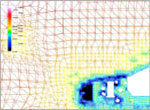
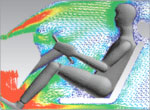
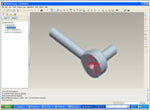

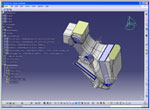
Importing CAD geometry into a pre-processor can be very time-consuming when the geometry kernels of the CAD system and CFD pre-processor are not identical. Adding to this problem is the fact that whenever the CAD design is changed, the same process has to be repeated.
FluidConnection avoids these efforts by using only the CAD system for all geometry related tasks, as well as for meshing. The CAD model is the reference geometry representation, no translated otherwise derived geometry models exist. Having only one geometry representation not only eliminates conversion and healing problems, but it also eliminates the possibility of having unsynchronized geometry versions.
To enable the use of a CAD model by FluidConnection, simulation relevant volumes and surfaces need to be tagged with simulation text strings. The text strings allow FluidConnection to apply the desired material models, volume- or boundary-conditions and create a mesh according to the best practices for the simulation type at hand.
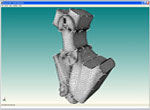
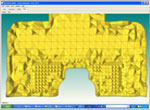
Mesh quality plays an important role to ensure robust execution of simulations and for the quality of CFD results. FluidConnection offers users many options to create meshes most suitable for a specific type of application and for the solver type involved.
Mesh parameters are defined in an abstract model allowing for re-use with varying geometries. The available control parameters include for instance: mesh size (absolute and relative to model size), curvature adaptation and multiple options for boundary layer definition (prism and tetrahedral).

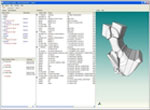
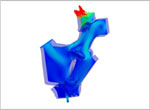
Traditional pre-processors define a simulation model for a specific geometry or a mesh. When the geometry changes, the model set-up has to be adapted or, depending on the nature of the changes, completely redone. Abstract models define a simulation set-up in a geometry and mesh independent way, which makes Abstract Models re-usable for any product shape whether it differs just minimally or radically.
Meer informatie
D2S International biedt consultancy services aan en gebruikt daarvoor eindige elementen software van HEXAGON (MSC Software).
